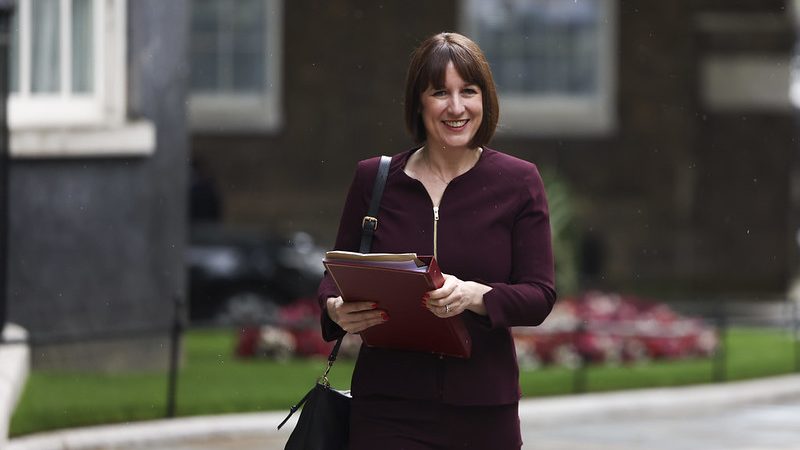
As Rachel Reeves delivers the first Labour Budget in nearly fifteen years today, she will demonstrate what Labour meant when it said that stability is change.
The context for this Budget could not have been more dire – a toxic inheritance of high taxes, high spending, poor performing services and a major fiscal black hole made this the worst possible inheritance imaginable.
Between 2010 and 2024 the Conservatives oversaw a four stage project of economic decline – an ideological austerity programme that starved rather than grew our economy, a period of Brexit turmoil where they put internal party politics first and the country’s living standards second, a Liz Truss Mini-Budget that crashed the economy and a Sunak-Hunt period that gave a more professional pretence but, in their desperate attempt to cling on to power, left an enormous financial blackhole.
Finding fiscal stability
After fixing the foundations of the economy and delivering fiscal stability, Starmer and Reeves will begin to rebuild our country through a revolutionary new economic model underpinned by a combination of productive investment, inclusive growth and fair taxes.
Fortunately, the politics is in the same place as the policy here. The country has seen the effects of years of underinvestment and want change. Polling from the Good Growth Foundation last week showed 48% of the public support moves to increase borrowing for investment with only 20% opposing.
Reeves’ proposed change of the definition of debt to Public Sector Net Financial Liability (PSNFL) cannot be dismissed as a technical tweak, it is a philosophical shift in how the Government thinks about investment.
READ MORE: Budget 2024: ‘We can avoid taxing workers by hiking capital gains tax’
By valuing assets as a future investment and not just a liability, PSNFL expands the role of the state to invest to grow the economy, raise living standards and reduce inequality.
The government is right to maintain self-imposed constraints on public sector borrowing, in order to show the sustainability of our public finances to the markets, and PSNFL is a reasonable and balanced way of doing that. Of course, the most important way to show financial sustainability to the markets is by growing the economy to raise living standards across the country. Prudence for prosperity you might say.
PSNFL will facilitate a new revolution in public investment, across health, transport and climate. In contrast to George Osborne’s economically illiterate model of ‘expansionary fiscal contraction,’ Reeves’ strategy views the strategic state as a catalyst, setting the direction for the booming private sector investment we saw at this month’s Investment Summit.
Investing in the future
The Chancellor’s investment revolution is also strengthened by this government’s package of ‘modern supply side reforms’ that grow the productive capacity of the economy in various policy areas. From political stability to pension fund consolidation and workers’ rights as well as a new wave of devolution, closer economic relations with Europe and planning reform, this Government is all hands on deck with non-fiscal growth measures.
The Starmer-Reeves project also marks a departure from the Thatcherite thinking that sees growth and equality as incompatible, but with its determination to tackle poverty, this new Government has recognised that reversing inequality and delivering sustained growth are two sides of the same coin.
On tax, Reeves has moved beyond the question of whether tax is too high or low to a clear focus on the quality and equity of taxation.The new Government’s life would be far easier if it moved away from its tax lock on working people by not increasing VAT, Income Tax and Employees’ National Insurance.
But this pledge remains the right one at a time when real wages have stagnated for over a decade and a half. While any changes to Employers’ National Insurance would be a tough decision, this would clearly be necessary to fill a substantial fiscal blackhole in a way that protects working people from direct tax rises.
Likewise, the proposed reforms to Capital Gains Tax strike the balance between facilitating investment, raising much-needed revenue and ensuring fairness between those who receive earnings from income and Capital Gains.
This week’s Budget will be remembered alongside the most consequential in British history. An investment revolution has begun, our living standards will be higher and our country back on its feet.
That’s a pretty big deal.
Read more of our Budget 2024 coverage:
- Labour’s Budget 2024: What policies could Rachel Reeves announce?
- ‘No fiscal rule is perfect. But this one means welcome investment’
- Fiscal rules: What is Reeves changing – and why does it matter?
- ‘We can avoid taxing workers by hiking capital gains tax’
- ‘A case against cuts, from the winter fuel allowance to the £2 bus fare cap’
- Minister says ‘normal’ for cabinet to seek good deal for departments amid unrest over cuts
- ‘How Labour can fix the worst economic inheritance since 1945′
- SHARE: If you have anything to share that we should be looking into or publishing about this story – or any other topic involving Labour– contact us (strictly anonymously if you wish) at [email protected].
- SUBSCRIBE: Sign up to LabourList’s morning email here for the best briefing on everything Labour, every weekday morning.
- DONATE: If you value our work, please donate to become one of our supporters here and help sustain and expand our coverage.
- PARTNER: If you or your organisation might be interested in partnering with us on sponsored events or content, email [email protected].




More from LabourList
‘Labour won’t stop the far right by changing leaders — only by proving what the left can deliver’
‘Cutting Welsh university funding would be economic vandalism, not reform’
Sadiq Khan signals he will stand for a fourth term as London Mayor